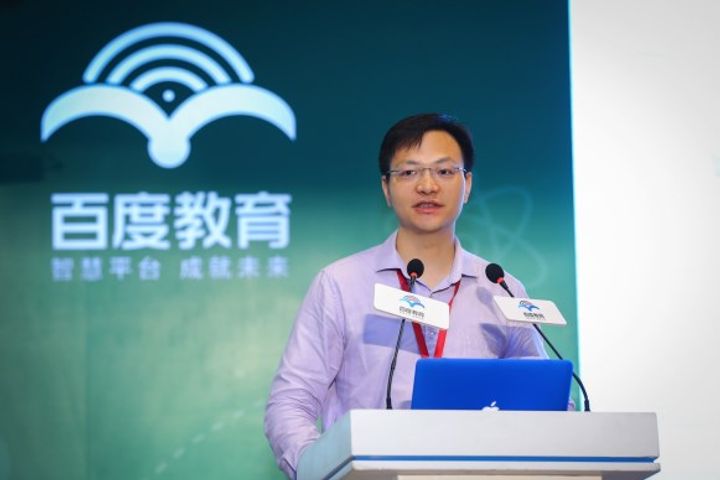 Baidu Education Repositions After Core Business Restructuring
Baidu Education Repositions After Core Business Restructuring(Yicai Global) Dec. 15 -- How to align the education business with the strategic transition at Baidu Inc. [NASDAQ:BIDU] is something that Zhang Gao, general manager of the education division of the search engine giant, has been thinking about over the past few years.
After continuous restructuring of core businesses during the last two years, "We have set a clear direction," Zhang told Yicai Global in an interview.
The direction is to apply artificial intelligence (AI) in teaching and learning scenarios. To this end, the overall revenue structure at the division will shift from customers (C) toward 'customer + business (B)', namely the 'C + B' model.
Baidu Education now has some 540 million monthly active users, Zhang said.
On the division's transition in recent years, he said Baidu is above all a content platform and has generated a wealth of files and courses over the years. At first, they wanted to share their content through education services, but then they realized content was not everything in the education market, and a bigger opportunity lay in the ability to use AI to understand users' needs, thus enabling them to map knowledge onto a single platform.
This is a new discovery the firm made after Baidu's introduction of the 'All in AI' program. It offers much greater opportunities than purely content-based education services, and Baidu has diverted greater resources to this area over the past few years, he noted.
As the second step in its business reform, Baidu Education will expand its base of B clients -- primary and middle schools, colleges and training organizations -- and use AI to map content from different sources and incorporate it into teachers' training programs.
Many existing 'AI + education' initiatives involve applying AI technology in English teaching. Some developers are working to replicate the model in primary and intermediate courses and other educational activities.
Creating totally individualized 'to C' products is virtually impossible, but service output is more efficient in the 'to business' segment thanks to the existence of a powerful knowledge map, Zhang believes. Baidu Education has a team of nearly 200 members dedicated to redeveloping existing technologies to supply this demand.
The company kicked off its business customer acquisition initiative three months ago, and has formed partnerships with about 1,000 schools, mostly primary and middle schools. It has intensified efforts to access schools in collaboration with local partners.
Baidu Education's services will cover more than 5,000 schools next year, he predicted. A vast scope for AI applications lies within schools, he explained. Schools are fully aware of the importance of new technology applications, and they have regularized curricula and textbooks. Introducing AI is easier within standardized knowledge systems.
Schools have the biggest say in primary and secondary education, or 'K-12 education,' suggested Xu Shi, founder of HikeCapital, a venture capital firm specializing in education. Baidu Education has created a viable business strategy that involves applying and upgrading AI technologies based on application scenarios in schools and acquiring more school resources.
It now has two main product lines -- 'to-customer' products that focus on developing online libraries and reading materials and tapping into individual customers' needs by leveraging the latest AI technology and business products that help primary and middle school teachers with lesson planning.
Baidu Education is also seeking to cultivate collaborations with other educational institutions. These organizations can offer large quantities of data to train AI programs, and AI applications must be based more on user scenarios, he argues.
However, Yu Minhong, founder of New Oriental Education & Technology Group Inc. [NYSE:EDU], is leery of collaborating with technology platforms, deeming it unfair for education companies and teachers if a technology firm develops an AI solution using data provided by such educational organizations.
"To a certain extent, machines can take care of the 'knowledge learning' part of education, but they can't replace teachers and teach students how to be good persons," Zhang noted.
The education division managed to make ends meet last year, and sales and user number both increased substantially this year, he said. The biggest revenue earner is to-customer services, where about five percent of the users are willing to pay for the services. As the school-oriented business continues to grow over the next two to three years, revenues from 'to C' and 'to B' businesses will eventually make up 50/50 of total sales, he advised.